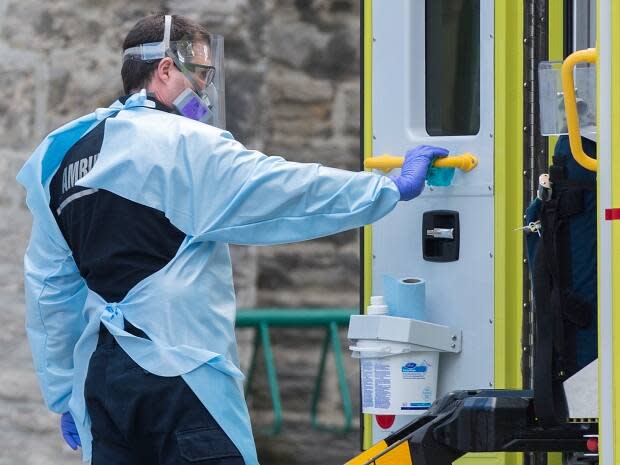Case numbers may appear to be stabilizing but don't count on Christmas just yet, Legault says

Though the province reported fewer than 1,000 cases for the third day in a row Tuesday, Quebec Premier François Legault and health experts say it's too early to celebrate.
In a news conference Tuesday afternoon, Legault said Quebecers will need to continue limiting their private indoor gatherings over the coming months, if they want to keep case numbers low and hospitals from becoming overcrowded.
That will likely mean that, regardless of whether the numbers remain stable over the next few weeks, Quebecers may need to plan for a smaller holiday get-together this year, Legault said.
"It's too soon to talk about Christmas but what we're seeing more and more throughout the world is that we have to avoid big gatherings, indoors, in smaller spaces. How long will that last? When will the vaccine come? It's too soon to say," the premier said.
And it isn't just the months ahead that are difficult to predict, but the weeks to come.
Quebec's public health director, Dr. Horacio Arruda, said it is too early to say whether restrictions in the province's original red zones, including Montreal, part of the Quebec City area and the Chaudière-Appalaches region, will be lifted on Oct. 28, as initially planned.
While case numbers went down around Thanksgiving, so did the rate of testing, and that may be why the numbers appear stable, Arruda acknowledged.
"It's a factor, it's clear. We have observed sometimes, by the end of the weekends that it goes a little down," he said.
He said that, even if cases do begin to decline again, Quebecers will need to follow public health regulations closely and limit their contacts if they want to avoid the possibility of a third wave.
As Health Minister Christian Dubé pointed out, the number of hospitalizations has continued to increase daily. There were 11 more hospitalizations Tuesday and 10 more patients in the intensive care unit.
Coming weeks will be crucial, experts say
Dr. Alex Carignan, an infectious disease microbiologist in the Eastern Townships, believes the province will need to wait at least another week before health officials can say whether cases have really stabilized.
"This coming week will really give us a better idea of whether we have reached a plateau in the second wave," Carignan told Radio-Canada.

"Right now, the number of hospitalizations and the number of deaths are only on a slight increase but we're still feeling a significant pressure in our hospitals."
Dr. Benoît Barbeau, a virologist at the Université du Québec à Montréal, agrees.
"The other thing is: It's not because we've reached a plateau that a surge cannot, all of a sudden, start kicking in. So we need to be very cautious," he said.
More regions become red and orange zones
While case numbers appeared to be stabilizing in Montreal, other regions saw a jump over the weekend.
On Tuesday, the rest of the Quebec City area (including Charlevoix), all of the Montérégie and the entire Centre-du-Québec region all became red zones.
The Saguenay-Lac-Saint-Jean region also moved up an alert level and is now considered an orange zone.
Despite the fact that almost all of Quebec is now in the red, the health minister said Tuesday that the province's colour-coded alert system and targeted closures appear to be working.
Increased measures for the new red zones are expected to gradually come into effect Friday.


